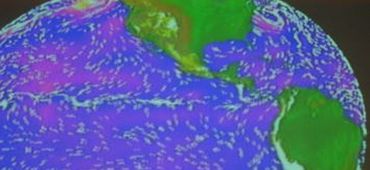Natural sciences

Technical and
natural science research is of many sorts and evokes many different
ethical questions. When research
involves humans, the traditional human-focused research ethic
is relevant.
However, the ethical questions that have most often been in focus for research within these fields have concerned the consequences of research (whereas research on humans has most often brought questions concerning integrity and autonomy). It is often intended that the researcher take voluntary responsibility for these issues, and it is therefore often appeals and codes or professional ethics guidelines that formulate the scientist's ethical obligations. An example is the Hippocratic Oath for Scientists, Engineers, and Executives, another the Guidelines for Professional Conduct from the American Physical Society.
The question may also concern the long-term health consequences that new techniques bring. One example is nanotechnology, which poses the risk that engineered and perhaps unintentionally released nanoparticles (which because of their small size may be highly toxic) enter the human body. The European Commission has raised concerns and started a discussion on nanotechnology that has resulted in a report, "Nanotechnologies", including 12 recommendations. Since then a First Implementation Report 2005-2007 and a suggested Code of conduct for responsible nanotech research have been issued. The EU Commission has since presented 7 principles, based on the code. Now EU legislation is possibly expected (see European Parliament resolution on regulatory aspects of nanomaterials). Today European nanotech research is regulated by the framework in place for chemicals, REACH. See also e.g. UNESCO's The Ethics and Politics of Nanotechnology, Nanotechnologies and ethics: policies and actions from COMEST and policy briefing no 23 Scientific Forward Look on Nanomedicine, from the European Science Foundation. Another recent area of concern is synthetic biology: see From Understanding to Action: Community-Based Options for Improving Safety and Security in Synthetic Biology.
The Toronto Resolution provides a framework for the preparation of each discipline's own ethical code. The most well-known code is perhaps the Uppsala Code, which has been suggested by, for instance, the ICSU (International Council for Science) as a possible foundation for the creation of future international guidelines (Science and Engineering Ethics vol. 6:1, Jan 2000). A comprehensive work in UNESCO's and ICSU's 1999 World Conference on Science in Budapest led to the outline Science Agenda - Framework for Action. An internationally acclaimed code for science and technology is the Norwegian Guidelines for research ethics in science and technology.
Some other areas of concern
These codes often raise questions regarding the researcher's own responsibility for the execution of the research. A number of cases of misconduct in research have received attention in recent years, not least concerning questions about publishing research results. There are also naturally in each country numerous specific laws that regulate research in various fields. To offer an example, certain research should heed laws on protection from radiation. It is every researcher's duty to become familiar with the laws that regulate his or her work.
An area that has more recently been the object of much debate is space research. A discussion over a longer period of time in the EU led to a European Space Policy. Further comments have come via publications such as the European Science Foundation's Policy Briefing no. 22 ["Statement on the green..."].
Last updated: 2010-01-03

